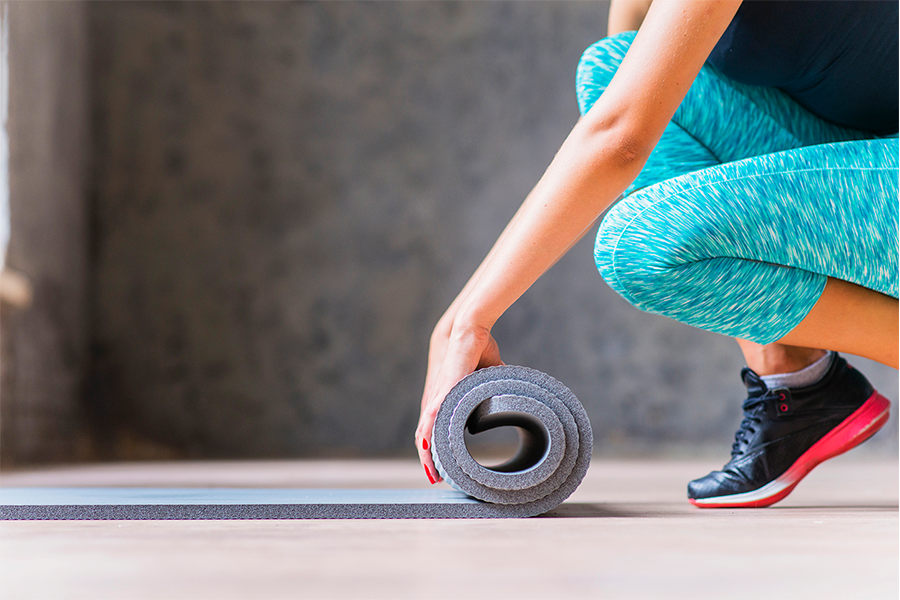Building muscular energy for performance

The sad truth is that as we age, muscles tend to shrink, and strength seems to decline. The reasons are many, and relate to hormones (or lack thereof), increase in oxidative stress on the body, which I equate to “rusting,” and most notably, a decrease in physical activity. Muscles absolutely must be stimulated in order to at least maintain good strength and function.
Every muscle cell in the body contains mitochondria. I compare those to little gas pumps. Every muscle cell has many of these energy producers and the more of these your muscles contain, the more energy and the better fitness your body has. A big question is how to increase the number of mitochondria that you have and how to keep them healthy so that they can do the jobs they are intended to perform. Mitochondria are very much affected by toxins, poor diet, hormonal imbalances, and especially by a sedentary lifestyle. Some recent studies are showing that prolonged sitting or inactivity during the day is as bad as smoking!
That said, if you are already exercising and not seeing gains in your energy or muscles, then the question is are you taking in enough of what your mitochondria need to perform well?
Here are a few tips, and in future we will examine each more closely:
1. Hydration – A general guideline is to drink half your body weight in ounces of filtered or purified water daily. For example, a 160-pound man should be drinking 80 ounces of water daily. Most of us do not get that much in per day, but aiming for that quickly identifies the deficits.
2. Nutrition – There is no one-size-fits-all diet. Many of you may have found benefit in very specific diets, but for those getting started, focus on 40/30/30 plan. 40 percent protein, 30 percent carbs and 30 percent healthy fats.
This can be done fairly easily by limiting the carbs to non-starchy vegetables and fruits, eating a variety of animal and plant proteins, and a few tablespoons per day of healthy fats such as olive oil, avocados, nuts, and grass-fed butter. Avoid trans fats such as palm oil as these “rust” rapidly and do more harm than good.
3. Exercise – The most important thing here is finding something you like. If you hate it, you won’t do it. If you have previously been a non-exerciser, begin with 15 minutes of walking or biking or anything that gets your heart rate up a bit. As you progress, I am a big fan of High Intensity Interval Training. You can look this up online, and I will be writing about this in a separate article, but it accomplishes a LOT in a minimal amount of time.
For those of you already working out, keep a good balance. You can overdo it, and find yourself not progressing in endurance and/or strength simply from not having enough recovery in between hard pushes of exercise. Resistance form exercise using weights, machines, or simply body weight exercises is equally important at maintaining and building muscle strength, which comes from … guess what? Increasing the number and function of mitochondria!
4. Supplements – What are the basics of helping mitochondria work better with supplements? There are a number of these that can help. Mitochondria are heavily dependent on amino acids, B vitamins, Coenzyme Q10 and minerals, such as magnesium to produce energy. The timing of these is important as well as it relates to exercise and recovery.
I hope the take-away from this overview is the realization that fitness begins at the cellular level. Whether referring to exercise, nutrition, supplementation, hormones, or rest, the cells must function well for you to function optimally.
Supplements to support the mitochondria – THE BASICS:
- Multivitamin/mineral (examples would be Klean Multi, Thorne Basic Multi); usually AM and PM
- Magnesium at bedtime (Mag glycinate, Optimag, Mag citrate)
- Coenzyme Q10 or ubiquinol (which may be included in a combo product, such as Mitochondrial NRG mad by Designs for Health); twice daily
- Extra B vitamins if deficient (usually taken in AM so as not to interfere with sleep!); 1-2 in AM
- Fish oil (Klean, Integrative Therapeutics); take with food, as with any fat soluble product, it works best with a meal
- Probiotics to support the immune lining of the GI tract (Klaire Pro 5, Klean Probiotic)
- Vitamin D-3 to maintain levels at 50 or above (also fat soluble, take with food); Klean Vit D, Prothera D3, Pure Encapsulations Vitamin D-3
These supplements can be found among my “picks” on the Wellevate portal. Feel free to peruse the site if there are brands or types that you prefer.
IMPORTANT FOR PROFESSIONAL OR COMPETETIVE ATHLETES:
It is imperative that you use products that are certified as safe and not having any illegal substances. To this I would recommend the Klean line of products, all of then are certified as being free of any of these performance enhancing or otherwise banned substances.


